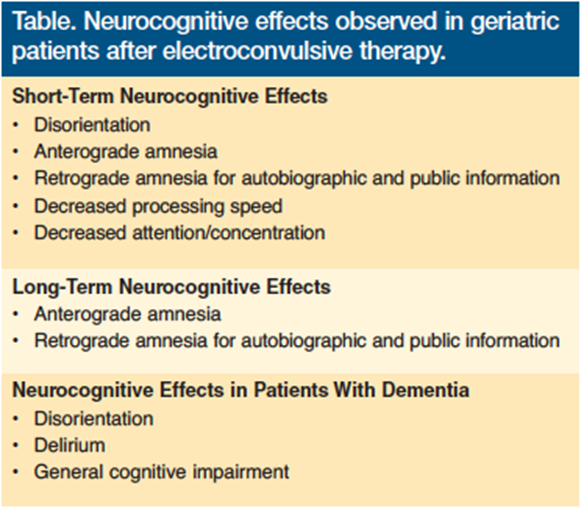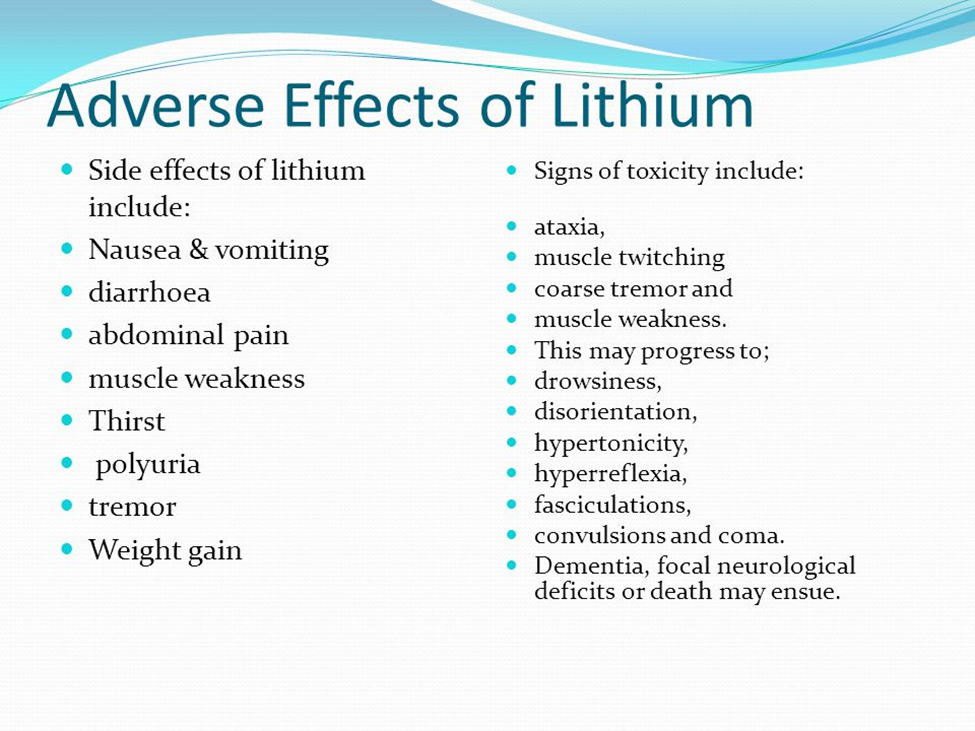A nurse is caring for a client who has undergone electroconvulsive therapy (ECT). The nurse should monitor the client for which of the following adverse effects of ECT?
Voice alteration
Neck pain
Memory deficit
Headache
The Correct Answer is C
A. Voice alteration: Voice alteration is not a typical adverse effect of electroconvulsive therapy (ECT). ECT primarily affects brain function and is not expected to cause changes in vocal function.
B. Neck pain: Neck pain is a potential adverse effect of ECT, particularly related to the positioning of the client during the procedure or muscle stiffness following the seizure induction. It is important to monitor for and address any discomfort or pain experienced by the client.
C. Memory deficit: Memory deficits, particularly short-term memory loss, are common adverse effects of ECT. These deficits are typically temporary and tend to improve over time following completion of the ECT treatment course.
D. Headache: Headache is a potential adverse effect of ECT, particularly following the seizure induction. It may occur due to the physiological effects of the procedure and typically resolves relatively quickly following the completion of the ECT session.

Nursing Test Bank
Naxlex Comprehensive Predictor Exams
Related Questions
Correct Answer is A
Explanation
A. “If I drink alcohol I will become very sick.”: This statement accurately reflects the purpose of disulfiram. Disulfiram works by causing unpleasant physical symptoms, such as nausea, vomiting, and flushing, if alcohol is consumed, thereby deterring the individual from drinking.
B. “If I drink alcohol I will not be able to fall asleep.”: This statement does not accurately reflect the effects of disulfiram. Disulfiram does not typically affect sleep patterns directly; its effects are related to the ingestion of alcohol.
C. “If I drink alcohol will lose control of my inhibitions and say something I don’t mean.”: This statement does not accurately reflect the effects of disulfiram. Disulfiram does not directly affect inhibitions or speech patterns; its effects are related to physical symptoms caused by alcohol ingestion.
D. "If I drink alcohol will have severe mood swings.”: This statement does not accurately reflect the effects of disulfiram. Disulfiram does not typically cause mood swings; its effects are related to physical symptoms induced by alcohol ingestion.
Correct Answer is A
Explanation
A. Weight gain and dry mouth: Weight gain and dry mouth are common adverse effects of lithium at therapeutic levels. They are not immediately dangerous but can affect compliance with the medication regimen.
B. Oliguria (reduced urine output) and muscle weakness are more concerning symptoms. They can indicate potential toxicity, especially oliguria, which suggests possible renal impairment, a serious concern with lithium therapy.
C. Hallucinations and blurred vision are more severe and typically associated with lithium toxicity rather than therapeutic levels. They indicate a need for immediate medical attention.
D. Coarse hand tremors and confusion: Coarse hand tremors and confusion are signs of lithium toxicity. At therapeutic levels, fine hand tremors can occur, but coarse tremors and confusion suggest higher serum levels.These symptoms are associated with toxicity and require urgent medical evaluation.

Whether you are a student looking to ace your exams or a practicing nurse seeking to enhance your expertise , our nursing education contents will empower you with the confidence and competence to make a difference in the lives of patients and become a respected leader in the healthcare field.
Visit Naxlex, invest in your future and unlock endless possibilities with our unparalleled nursing education contents today
Report Wrong Answer on the Current Question
Do you disagree with the answer? If yes, what is your expected answer? Explain.
Kindly be descriptive with the issue you are facing.
